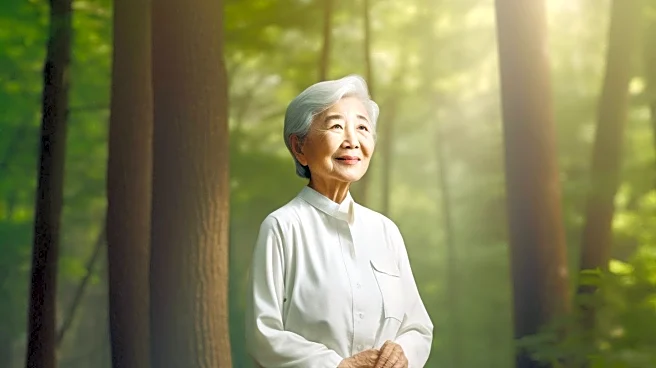What's Happening?
Recent research challenges the traditional belief that curiosity diminishes with age. Psychologists Dr. Mary Whatley from Western Carolina University and Dr. Matthias Gruber from Cardiff University's Brain Imaging Centre have found that curiosity becomes more focused and specific as people age. This targeted curiosity can help keep the brain young, suggesting that maintaining a broad curiosity into older age may be beneficial for cognitive health. The findings were discussed in a podcast episode exploring how curiosity impacts ageing and brain function.
Why It's Important?
Understanding the role of curiosity in ageing could have significant implications for mental health and cognitive longevity. As the population ages, strategies to maintain cognitive health are increasingly important. Encouraging curiosity could be a simple yet effective way to support brain health in older adults, potentially reducing the risk of cognitive decline and improving quality of life. This research may influence public health policies and educational programs aimed at promoting lifelong learning and curiosity.










